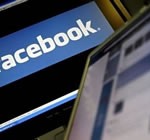
Sam Houston State University’s controversial social media policy is perhaps the only thing that could unite the campus’s College Republicans, College Democrats, and the Young Democratic Socialists: The groups have joined together to protest rules that could affect their presence of Twitter and Facebook.
SHSU, a 17,000-student public campus in Huntsville, Texas, rolled out a new policy for university-related social media this semester, creating a “social media universe” that student groups can join on popular social sites where students communicate and announcements are made and discussed.
The school’s policy stipulates that any student group that uses the university’s name or abbreviation must join the official SHSU social media universe or change their name.
For example, SHSU Lovers of Liberty, an on-campus group, would have to opt in to the school’s “social media universe” or change its name to something that didn’t reflect university affiliation, making it difficult — if not impossible — to draw followers on Facebook, Twitter, and other social sites.
The student backlash to the new policies culminated Sept. 22 when the disparate campus political groups sponsored a “free speech wall” and invited students to write anything they wanted on the wall – a protest against what students and free speech advocates have called a trampling of constitutional rights.
“The social media policy is in theory optional, but if it means this level of control over the name of an organization, that goes too far,” said Adam Kissel, vice president of programs for the Foundation of Individual Rights in Education (FIRE), which has tracked strict internet stances in higher education. “Student groups should not be subject to a university’s special rules just because they won’t join the official online community.”
SHSU’s social media rules were designed so unofficial campus groups that did not speak for the school were not mistaken for official SHSU spokespeople, Frank Holmes, vice president for university advancement, wrote in a letter published by The Houstonian, a student newspaper.
“The policy was designed to strengthen the university’s brand and assist members with reaching the audience they are trying to engage—not infringe on individual rights,” Holmes wrote. “For those who believe that the policy has language in it that interferes with these freedoms, that is not the case.”
The social media policy stems from a commission launched last year by SHSU President Dana Gibson.
In his letter, Holmes stressed that student groups would not be required to join SHSU’s “social media universe,” but reminded the campus community that membership “provides access to a much larger audience, allows use of trademarked SHSU branding on your accounts, and offers increased opportunity for sharing content relevant to your specific group.”
Holmes said groups that want to join the university’s official Twitter and Facebook presence must “complete an application and provide administrative rights” so SHSU can better keep in touch with students, faculty members, and others on campus.
Having groups sign up to be part of the universe will “increase SHSU’s ability to respond to a crisis or emergency situation, so we can quickly communicate throughout the social media community by keeping our faculty, staff, students and others informed,” Holmes wrote.
An SHSU spokeswoman did not return phone calls from eCampus News before press time.
Colleges and universities across the country have expressed concern about trademarking school names on popular social media sites, Kissel said, but SHSU is likely the first to take such a restrictive posture.
“No reasonable person would confuse a student organization with being the officially recognized spokesperson of the university,” Kissel said. “Everyone already knows those groups speak only for themselves.”
The campus protest involving the free speech wall created even more controversy around SHSU’s handling of free speech rights.
A university professor, after seeing a curse word written in front of President Obama’s last name, demanded that the event organizers cover the word, according to FIRE’s account of the protest.
When student organizers refused to censor the free speech wall, the professor returned with a box cutter and removed the profanity from the wall. The campus police were called to the scene, according to FIRE, and students were told to cover up the curse word or remove the wall.
Student organizers decided to take down the free speech wall.
“It is not a good feeling to watch the free expression of your fellow students taken away because someone disagrees with their message,” Morgan Freeman, an organizer of SHSU Lovers of Liberty and creator of the free speech wall, wrote in a blog post. “It is a violation of their rights, and a threat to the rights of everyone else at our university.”
Gibson, the university president, said in a Sept. 23 letter that SHSU “respects the principles of freedom of speech” and assured FIRE officials and student protesters that the incident was under investigation.
Controversial social media stances might be new on college campuses, but trademark disagreements related to student websites has been an ongoing issue in higher education over the past decade.
The University of California Santa Barbara (UCSB) in 2005 told a student he could not use the letters UCSB in his website, TheDarkSideOfUCSB.com.
The university eventually rescinded legal action against the student blogger after FIRE sent a letter defending the student’s right to use the school’s initials.
- Research: Social media has negative impact on academic performance - April 2, 2020
- Number 1: Social media has negative impact on academic performance - December 31, 2014
- 6 reasons campus networks must change - September 30, 2014
